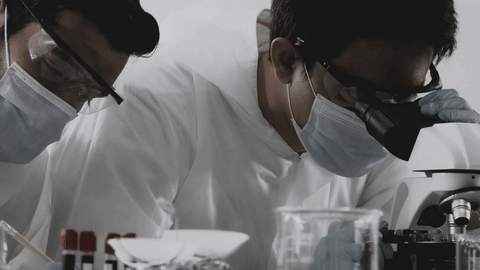If you have IBS, and your mom or dad or grandma or sister have IBS, does that mean that IBS is genetic? Yes and no. How’s that for an annoying opening?
Is IBS Genetic or Hereditary?

Ok, wise guy. What does that mean?
It means that there are things that can cause IBS that are genetic. But there is not a single gene or set of genes for IBS. There is no “IBS gene.” And there is no IBS genetic testing, and there never will be. Well, there might be, but it won’t be very good, or at least very helpful for actually solving your IBS.
Let’s back up a little bit so that we can explain all of this.
IBS is an umbrella term. It is not a single condition with a single cause. It is a dumping ground for digestive problems that your doctor doesn’t understand, and there are literally hundreds of causes for the relatively small number of symptoms that are placed under the umbrella of IBS. That’s how I know that there won’t be good genetic testing for IBS.
It’s like asking, “is fatigue genetic”? No one asks this, because we all know (or should know) that there are hundreds of reasons that you can be tired. The same is true for having IBS.
Does IBS Run in Families?
Again, yes and no. I know, super annoying. But the truth is usually messy.
Does IBS run in families. Well, IBS runs everywhere, not just in families.
IBS is a very common condition. Around 10% of the population suffers from IBS, so there’s a pretty good chance that someone else in your family has IBS. When 1 out of every 10 people has something, then you’re bound to know a few people who have it. That’s just how IBS is.
But what if you have several people in your family that have IBS? Why would that happen when it’s not a genetic condition? There are several reasons for this.
The most common reason that you might have several people in your family with digestive problems is because food intolerances are largely genetic. It’s likely that no one ever told you that before, but it’s true. Food intolerances are very genetic.
Let’s take the example of gluten intolerance. It is well understood in the medical system that this is a genetic problem and that it’s hereditary. You don’t hear much about it, but it’s a known fact.
And the same is true for other food intolerances. Reactions to dairy, egg, soy, corn, etc. and on and on, those are also genetic.
And everyone in your family is basically eating the same diet. They might be preparing the foods differently, but I’ll bet they are all eating products made from wheat, and dairy, and egg, and corn, and other common ingredients, unless they are taking great pains to avoid them. And your grandparents were eating the same foods too.
And that’s the genetic part of IBS. You get those food reactions from your family. And if you don’t do anything about it, and they didn’t do anything about it, then you can have generations of problems such as IBS. The good news is that you can change that. It’s not inevitable.
Are You Born With IBS?

And if they have, for example, a dairy allergy, and you are feeding them dairy formula, then they can have digestive problems. They can also get exposed to foods that mom eats via breast milk. So you aren’t born with IBS, but you can get it right away.
There’s another hereditary part that I haven’t mentioned yet. It’s your microbiome. You inherit your gut microbiome. The microbiome is all the bacteria that inhabits your digestive tract. It has to come from somewhere, and you get it from your parents and the environment in which you live, which is the environment in which they live.
And how good is their microbiome? That depends on a whole lot of things, like their diet and lifestyle. And as you can imagine, a lot of people don’t have very healthy microbiomes to pass on to their children.
Will I Have IBS Forever?
This is the good part. IBS is not inevitable. It is not fate. It is within your control, but it may be difficult to find the help that you need to stop it.
IBS can go on for many, many years. And I’ve seen many people who’ve suffered with with it for twenty or thirty years or more. And it usually wasn’t for a lack of trying to figure it out.
Remember when I said that there were hundreds of causes of IBS? I wasn’t kidding or exaggerating. There are literally hundreds of causes of IBS. And when you go to your doctor, or even to the gastroenterologist, how many causes do you think they are testing for, or are even aware of? It’s not hundreds. It’s just a handful, resulting in limited treatments based mostly on your symptoms, not the cause of the problem. (Most of the tests they run are to rule out other things, not to sort out your IBS.)
And when they can’t help you, you may feel like you are one in a million, or that you are the rare case that can’t be helped, but you are just like most of their other IBS patients, who still have IBS.
So how do you figure it out? You see an IBS Specialist. An IBS Specialist is someone who only treats IBS, and who will help you do the detective work to sort through those hundreds of causes.
And that’s how you beat IBS. Because it’s not something that you have to suffer with just because lots of other people in your family suffer with it. You can be different. You can get better. And then you can show them how to get better too.
Does your family suffer with IBS?

Dr. Wangen is the founder and medical director of the IBS Treatment Center, the award winning author of two books, and a nationally recognized speaker on digestive disorders. He has been on ABC, NBC, and Fox as well as public radio, and was named one of Seattle’s Top Doctors by Seattle Magazine.

